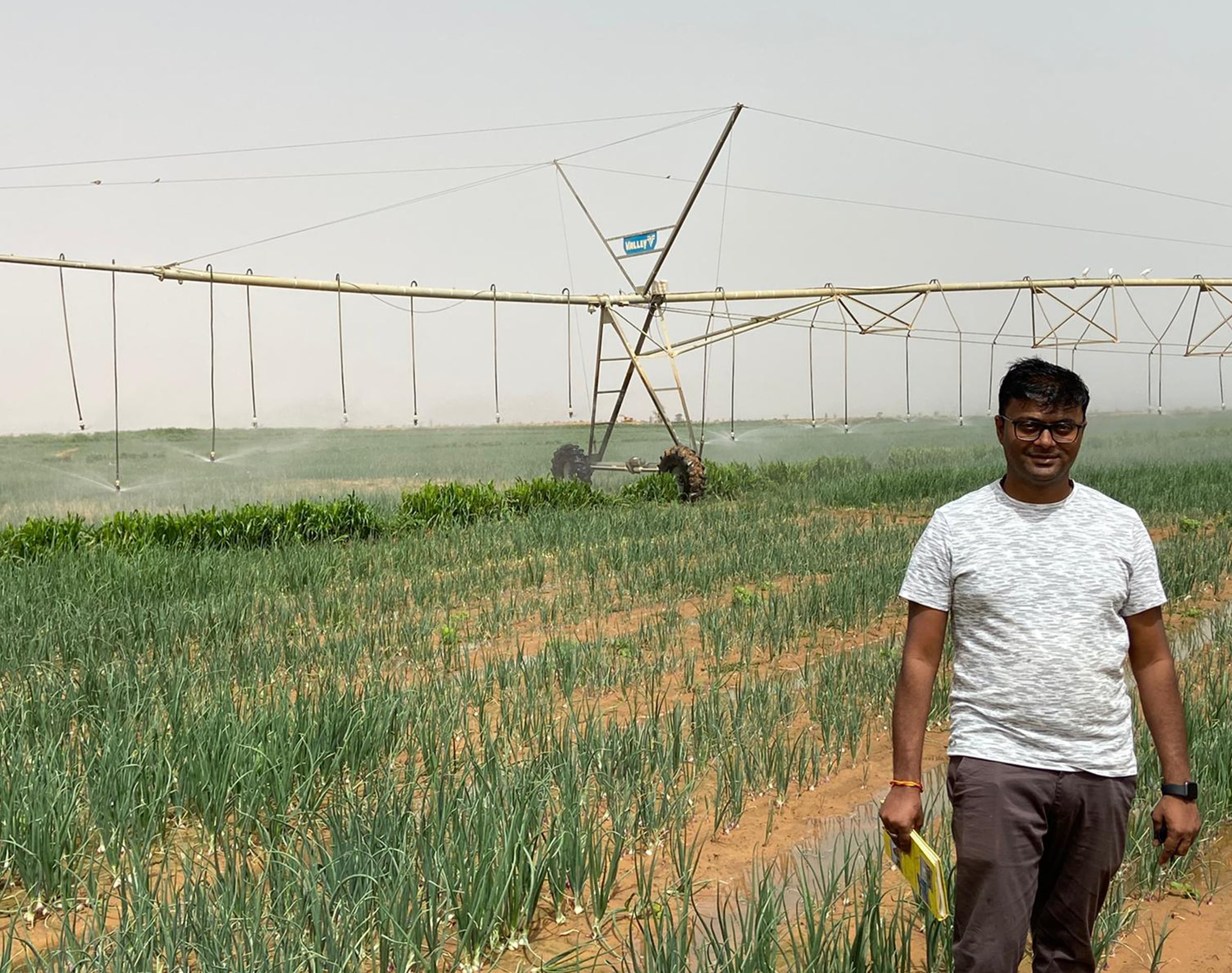by
User Not Found
| Mar 09, 2022

Senegal is a country along the coast of West Africa. Their climate and topography range from arid to tropical. Agriculture is an important part of the country's economy –with 70% of the population involved in ag – yet they still need to import much of the food they require for domestic consumption.
Farmers in Senegal grow primarily millet, corn, rice and sorghum. Rainfall varies widely from the north to the south of the country, but the average precipitation is only 34 cm annually. Growers continue to rely on rain-fed agriculture, with only about five percent of the land being irrigated.
Northern Senegal, where Swami Agri is located, has an arid climate, making agriculture almost impossible unless the soil is heavily and efficiently irrigated. About 12 years ago, Swami Agri worked with Valmont Irrigation to install Valley pivots and technology on their operation. They chose the Valley® brand for its premier quality, durability in all climates, and the responsive support offered by Delta Irriation, the Valley Dealer in St. Louis, Senegal.
Drawing water from Lac de (Lake) Guiers through a canal, the pivots have proven reliable for more than a decade of service over the potatoes, onions and bananas they irrigate. Swami Agri also implemented AgSense® for remote monitoring and control of the pivots, Crop Link® for pump control, and high-efficiency sprinklers. Soon they will begin a trial of Valley SchedulingTM for irrigation recommendations based on real-time, in-field data about soil moisture, weather, crop types and stages of development.
The pivots help Swami Agri conserve water resources, irrigating more efficiently and with more accurate data, to produce better yields and higher-quality crops. Depending on the season, they produce approximately 42-45 tons of potatoes per hectare and 40-55 tons of onions per hectare.
Despite the extreme weather conditions, Swami Agri has experienced no issues with the pivots. This is also due in part to Delta Irrigation technicians training the Swami Agri team to troubleshoot any minor problems and make sure there are no unplanned interruptions during peak irrigation times. As part of the initial project, Valley engineers also performed a study of the local soil and climate before designing the irrigation machines.
Improving Life through Food Security
Northern Senegal previously had no major agricultural production. Through Swami Agri's investments in pivot irrigation, the farm helped to energize the local economy by creating new employment opportunities, conserving water and providing year-round availability of produce for the first time.
Their efforts correspond with a national effort to improve food security across the region. The Senegalese government recently established a special fund called Plan Senegal Emergent (PSE) to encourage different entities to help establish food security by growing staples such as rice and potatoes. As mentioned previously, Senegal has a historical imbalance in food imports, so any production that can be optimized domestically will help overcome that challenge.
Swami Agri is now the largest pivot-irrigated farm in Senegal, and much like Valmont is the pioneer of pivot irrigation, Swami Agri led the way introducing potatoes as a viable commercial crop to the country.